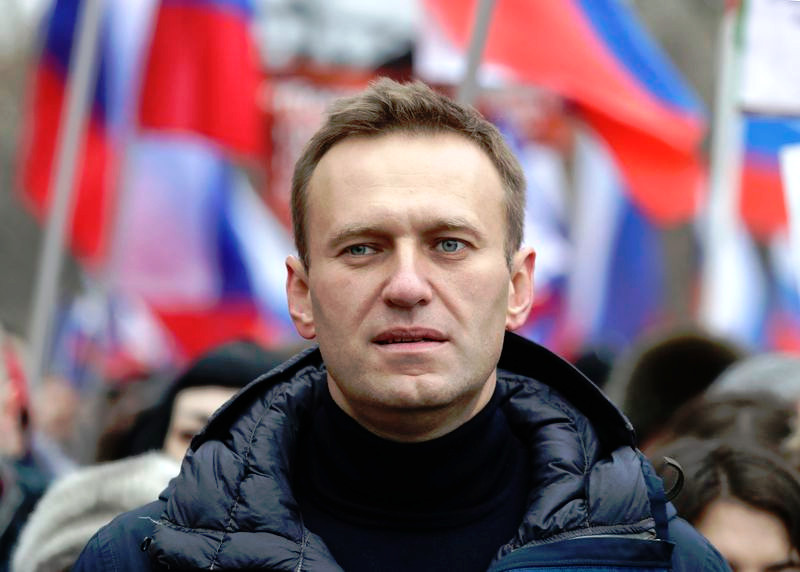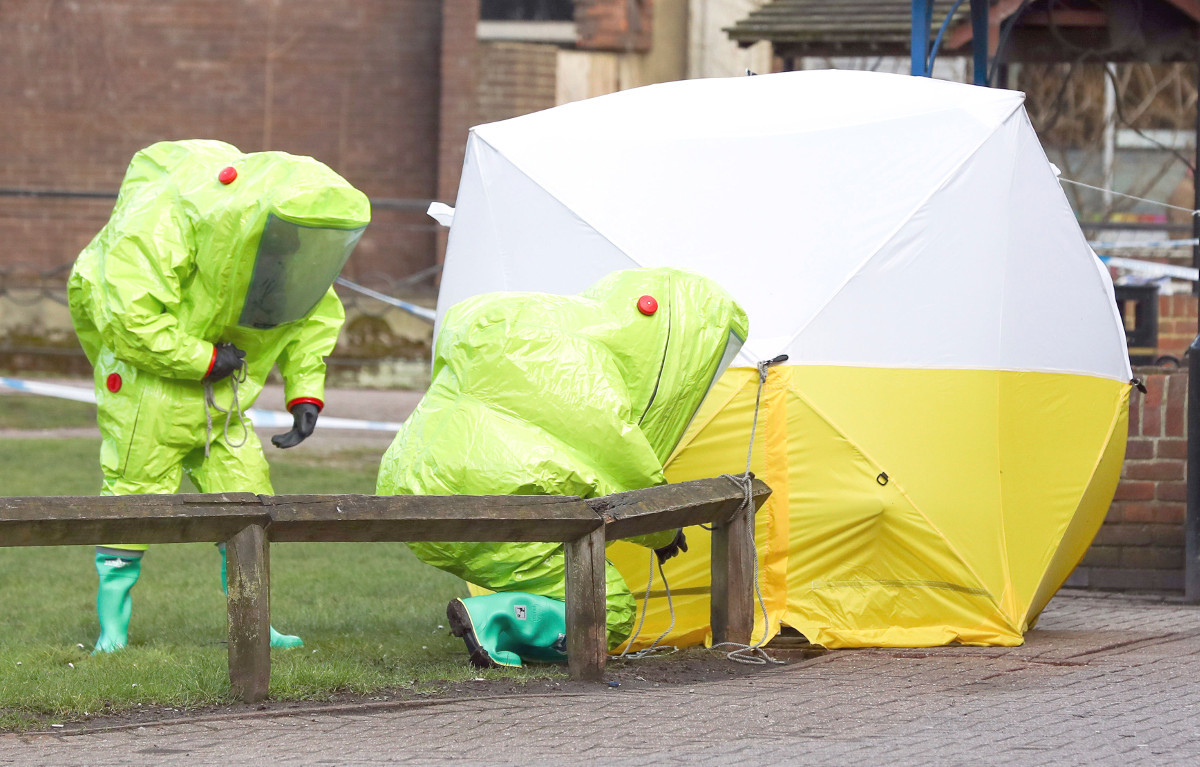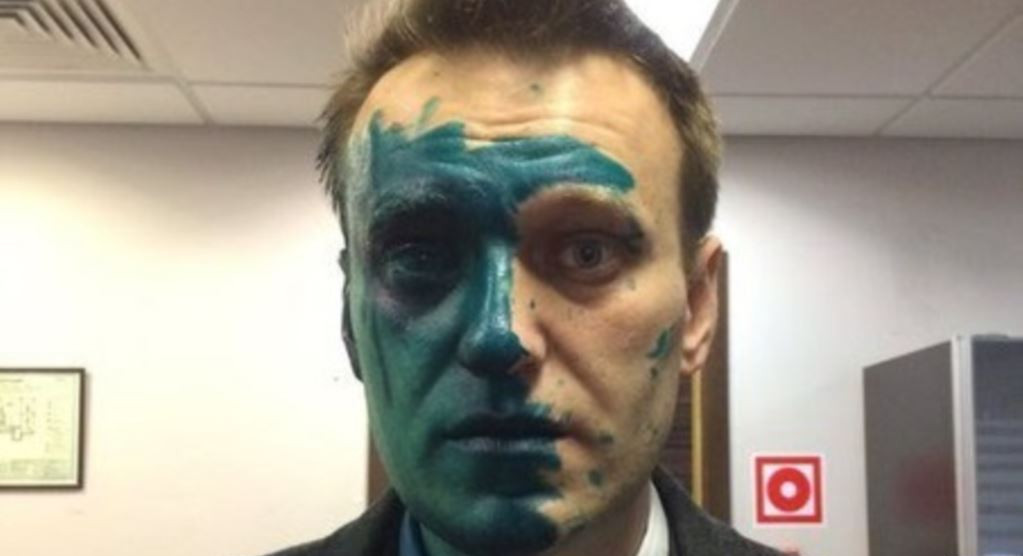German authorities say they have “unequivocal evidence” that Russian opposition figure Alexei Navalny, who remains in a coma, was poisoned by a nerve agent from a secretive family of such chemical weapons known collectively as Novichoks. The first known instance of one of these agents being used was in a failed assassination attempt against ex-Russian spy Sergei Skripal in the United Kingdom and its appearance again strongly points the finger at direct involvement by the Kremlin in this latest attack, despite its denials.
The German Federal Government announced that it had found the evidence of a Novichok in Navalny’s system on Sept. 2, 2020, based on findings from a special military medical laboratory within the Charité – Universitätsmedizin Berlin hospital in the country’s capital. Navalny had first presented symptoms of poisoning while on a flight from the Russian city of Tomsk to the country’s capital Moscow on Aug. 20, after which the plane flew to Omsk, where he was rushed to a hospital. On Aug. 22, he was flown to Germany to receive more specialized medical care. Navalny’s associates believe the poison was added to his tea at the airport in Tomsk, but it remains unclear when and how the chemical agent was administered.

“It is a startling event that Alexei Navalny was the victim of an attack with a chemical nerve agent in Russia,” German authorities said in a statement. “The federal government condemns this attack in the strongest possible terms. The Russian government is urged to explain itself to the incident.”
“The Federal Government will inform its partners in the EU and NATO about the results of the investigation via the Federal Foreign Office in the channels provided for this purpose,” it continued. “It will discuss an appropriate joint reaction with the partners.”
German officials also said that they would notify the Russian Ambassador to Germany of the findings. They would inform the Organization for the Prohibition of Chemical Weapons (OPCW), the international body that oversees the Chemical Weapons Convention, to which Russia is a party, as well.
“With this, it is certain that Alexei Navalny is the victim of a crime,” German Chancellor Angela Merkel subsequently said. “He was meant to be silenced and I condemn this in the strongest possible manner.”
“There are very serious questions now that only the Russian government can answer, and must answer,” she continued, further describing the poisoning as “the attempted murder by poisoning of one of Russia’s leading opposition figures.”

Little is known publicly about the Novichoks, or “newcomers,” development of which began in the 1970s with the immediate aim of defeating NATO protective gear and chemical weapons detection systems. They are organophosphate nerve agents, which function in the same way as better known types, such as Sarin or VX. They effectively prevent the body’s nervous system from communicating with other organs, impairing normal muscle function, typically causing victims to die by suffocation or cardiac arrest as they can no longer control their breathing or heart rate.
Novichoks are reportedly much more lethal than previous nerve agents, but also safer to handle and employ. This may be in part due to some being binary compounds, with two compounds that are harmless until mixed together.
Active development work on these agents continued at least until the fall of the Soviet Union 1991, and possibly afterward, with an additional eye toward circumventing the Chemical Weapons Convention by using precursor chemicals the agreement does not regulate or monitor. This agreement was first signed in 1993, after years of negotiations, but did not enter force until 1997.
A Novichok was also employed in the failed attempt to assassinate former Russian spy and double agent Sergei Skripal in March 2018. Skripal’s daughter, Yulia, was also sickened in the attack, but both survived. In June of that year, British citizens Charlie Rowley and Dawn Sturgess came into contact with a discarded container that had held the agent, and Sturgess sadly died.

At the time, then-U.K. Prime Minister Teresa May described these incidents as a “brazen act of war” and demanded an explanation from Russian authorities, threatening “extensive measures” if they did not comply. The Kremlin denied any involvement, and spun a number of conspiracy theories in response, with the U.K. authorities eventually expelling 23 Russian diplomats in response.
There is also evidence that Bulgarian arms dealer Emilian Gebrev may have been targeted in another failed Novichok attack in 2015. Russian Banker Ivan Kivelidi, as well as his secretary Zara Ismailova, died in 1995 after reportedly being poisoned with VR nerve agent, a Soviet equivalent to VX, development of which reportedly aided in the crafting of the subsequent Novichoks.
The Skripal assassination attempt has since been tied to an element of Russia’s Main Directorate military intelligence agency, better known by the Russian acronym GRU, known as Unit 29155. There is also evidence tying members of this unit to the attack on Gebrev. Unit 29155 has also been linked more recently to a reported campaign to incentivize the Taliban and other terrorist and criminal elements in Afghanistan through cash bounties to attack American and other foreign troops in that country.
In 2018, GRU agents targeted the offices of the OPCW in The Netherlands in what may have been an attempt to gain insight into the Skripal investigation or otherwise disrupt that work. Russia has a well-established history of using misinformation and disinformation to distract from various malign activities, including attacks on opposition figures and dissidents, often accusing opponents of being responsible for the exact same kinds of acts it stands accused of.

Of course, these are only some of the politically motivated assassinations and assassination attempts, inside the country and out, linked to the Kremlin since the fall of the Soviet Union and especially under the leadership of Russian President Vladimir Putin. One of the most infamous of these attacks was the killing of Alexander Litvinenko, another former Russian intelligence officer, in London in 2006 using a lethal dose of radioactive isotope polonium-210.
It’s not necessarily clear why the Russian government may have targeted Navalny in this way now, having been content to jail him on no less than 13 occasions in the past. However, these sentences had not succeeded in pushing him out of Russian politics and there are indications that the Kremlin’s attitude toward him may have been changing in recent years already.
In 2017, still unknown assailants sprayed him in the face with what initially appeared to be green antiseptic dye, but was later reported to be a possible chemical mixture of some kind that caused him to lose 80 percent of his vision in his right eye. Navalny blamed Russian authorities for orchestrating that attack and then failing to investigate.

This also comes at a time when Putin is under particular strain, especially over the country’s handling of the COVID-19 pandemic. In July, he was able to secure changes to the country’s constitution that notably included changes to presidential term limits, allowing him to run for two more six-year stints as the country’s head of state. Putin has been President since 2012 and also held the post between 1999 and 2008, following Boris Yeltsin’s resignation. He won his latest highly-controversial re-election after a poll Navalny was notably barred from taking part in, in 2018.
There have been significant protests against Putin in Russia’s Far East Region this year and he has no doubt been looking at his smaller neighbor Belarus, where popular demonstrations have besieged that country’s dictatorial president Alexander Lukashenko and show no signs of letting up despite major crackdowns. Attempting to knock out one of Russia’s biggest opposition political actors would certainly be one tactic to try and put a chill through protestors critical of Putin. It would certainly be in line with past assassinations of the president’s critics.
It remains to be seen how the German government will respond after consultations with its allies and partners in NATO and the EU, as well as how Russian authorities will react. Navalny’s condition was said to be improving, but he is still in a medically induced coma. If he were to die, that would undoubtedly change the calculus on all sides.
What is clear is that there is little doubt now that Russia is willing to use its Novichok agents for politically motivated assassinations inside and outside of the country.
UPDATE: 1:10pm EST
The U.S. National Security Council has now issued a statement on Twitter saying that the U.S. government is “deeply troubled” by the German findings and “will work with allies and the international community to hold those in Russia accountable.”
Contact the author: Joe@thedrive.com
